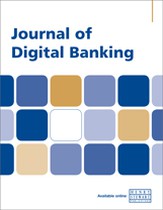Central bank digital currencies
Abstract
Advances in technology and digitalisation are widespread and affect all facets of life, including jobs, education and social interactions. Electronic devices and high-speed networks have become practically ubiquitous, leading to the rise of the modern, digital consumer, who is positively inclined towards mobile and online platforms and is increasingly the driving force of consumption. The need for speed, convenience, round-the-clock availability and an enhanced user experience has led to significant changes in the payments space. These include the emergence of non-bank payment service providers, private cryptocurrencies and real time gross settlement (RTGS) enhancements. These changes have prompted many central banks to study the possibility of a central bank digital currency (CBDC) as a payment token and the impact it could have on their economies. Electronic central bank-based currencies have been in place for decades. They are in the form of banknotes and serve as reserve balances that banks and participating financial institutions maintain with central banks. The latter are used for interbank settlements. CBDC is a potential new form of money, issued digitally by the central bank and intended to serve as legal tender. Given that these are government-issued legal tender, CBDCs will need to be backed by government debt. This paper aims to provide an understanding of the concept of CBDCs, the case for and against CBDCs and the CBDC experiments worldwide that explore central bank investigations around CBDC usage.
The full article is available to subscribers to the journal.
Author's Biography
Lewis Sun was appointed regional head of product management for Global Liquidity and Cash Management (GLCM) in Asia-Pacific, in August 2017. He has performed in various roles in China and Hong Kong and has had a successful career in GLCM since he first joined HSBC in 2002 as a product manager in mainland China. He was seconded to Hong Kong as a regional sales manager in 2008. He became head of sales for GLCM in China in 2010. In this role, he succeeded in providing cash management solutions and advice to corporates across mainland China, leading the team with his thorough understanding of the market landscape, the dynamic environment and the challenges faced by corporates in China. He was then appointed head of Global Liquidity and Cash Management, HSBC China, in February 2015. He holds a master’s degree in electronics engineering and an international MBA degree from Tsinghua University, as well as a certificate in international cash management from the Association of Corporate Treasurers in the UK. His education and broad experience fit him ideally for the task of driving the development of effective liquidity and cash management solutions for clients in Asia-Pacific.
